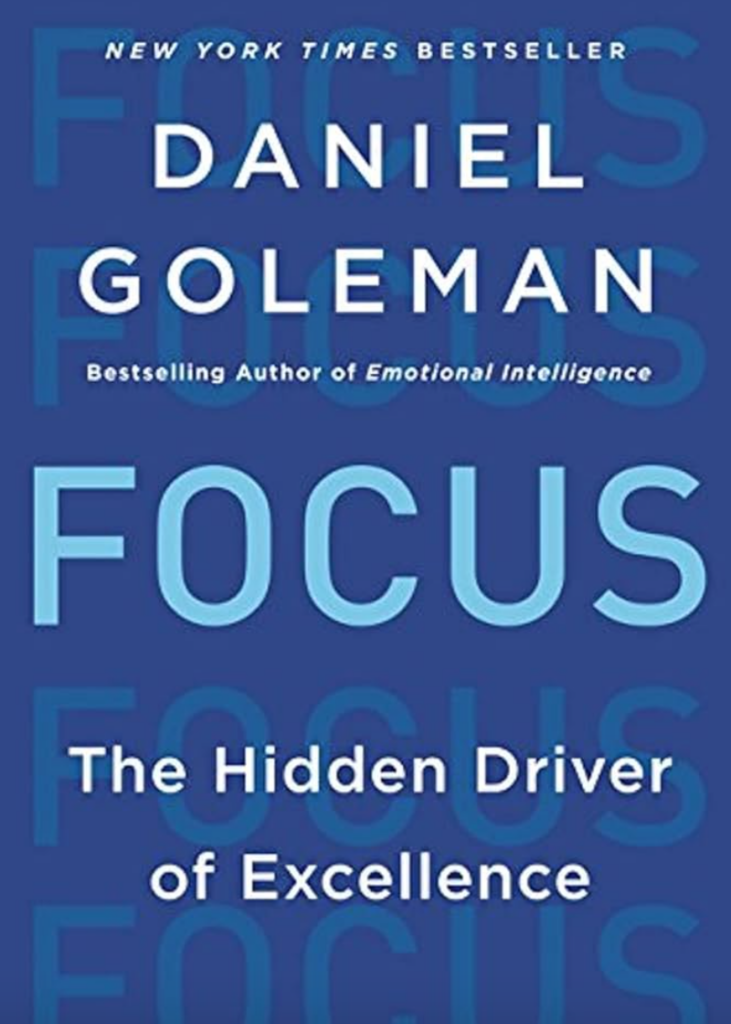Book Review: Focus: The Hidden Driver of Excellence by Daniel Goleman
In an age where distractions are abundant, mastering the art of focus and attention is more critical than ever. Daniel Goleman, renowned for his work on emotional intelligence, explores this essential skill in his book Focus: The Hidden Driver of Excellence. This comprehensive guide highlights the role of attention in personal growth, professional success, and navigating a chaotic world.
Why Focus and Attention Matter
Attention is not just about concentration; it is the foundation of effective decision-making, emotional regulation, and long-term achievement. Goleman emphasizes that focus is like a mental muscle—strengthened through deliberate practice but weakened by constant interruptions. In a society consumed by smartphones, notifications, and multitasking, Focus serves as a timely reminder of the power of presence and mindfulness.
The Three Types of Focus
One of the book’s key insights is its breakdown of focus into three categories:
- Inner Focus:
Inner focus refers to self-awareness, emotional intelligence, and the ability to understand one’s values, strengths, and limitations. Goleman argues that this type of focus is essential for making sound decisions and staying true to personal goals. - Other Focus:
This involves empathy and the ability to connect with others. Whether you are a leader, team player, or caregiver, the capacity to tune into the emotions and needs of others is critical for building meaningful relationships. - Outer Focus:
Outer focus encompasses strategic thinking, innovation, and the ability to understand complex systems. Leaders and innovators rely on this broader perspective to navigate challenges and anticipate future trends.
Balancing all three types of focus creates a holistic approach to attention management, equipping individuals to excel in all aspects of life.
The Science of Attention
Goleman incorporates neuroscience to explain how focus operates in the brain. He discusses the prefrontal cortex, responsible for executive functions like planning and impulse control, and how this part of the brain helps us sustain attention. He also explores the concept of “flow,” a state of deep immersion and optimal performance, which often arises from sustained focus.
Focus in the Digital Age
One of the book’s standout sections addresses how modern technology affects our ability to concentrate. With endless streams of information and social media competing for our attention, Goleman advocates for intentional practices to reclaim focus, such as:
- Mindfulness meditation: Training the mind to return to the present moment.
- Single-tasking: Prioritizing deep work over multitasking.
- Scheduled breaks: Allowing the brain to rest and recharge.
By consciously managing our attention, we can avoid the pitfalls of digital distraction and enhance productivity.
Focus and Leadership
For leaders, attention is a critical asset. Goleman highlights that leaders with strong outer focus excel in strategic thinking, while those with developed inner focus remain authentic and resilient. Empathy, a key component of other focus, enables leaders to connect with their teams, foster trust, and inspire collaboration. In this way, attention directly influences organizational success.
Practical Applications for Readers
Goleman doesn’t just present theory—he provides actionable insights for improving focus in daily life. Readers can learn to:
- Identify their focus blind spots.
- Incorporate mindfulness exercises into their routines.
- Balance short-term goals with long-term priorities.
- Cultivate deeper relationships by being fully present.
These strategies are accessible to anyone, whether you’re a student, professional, or entrepreneur.
Some Excerpts :
Strengths of the Book
- Research-Driven Insights: Goleman seamlessly integrates psychology, neuroscience, and real-world examples, making the book both informative and relatable.
- Actionable Tips: The inclusion of practical advice ensures that readers can implement changes immediately.
- Broad Appeal: Whether you’re looking to boost your productivity, enhance leadership skills, or improve relationships, Focus offers something valuable for everyone.
Areas for Improvement
While the book is compelling, some readers may find its ideas somewhat repetitive. Additionally, those seeking in-depth techniques for advanced mindfulness practices may need to consult supplementary resources.
Who Should Read This Book?
- Professionals: Learn how to enhance focus for better decision-making and productivity.
- Leaders: Discover how attention shapes strategic thinking and team dynamics.
- Students: Improve concentration and study habits for academic success.
- Anyone Seeking Personal Growth: Gain tools to foster emotional intelligence and mindfulness.
Final Thoughts: Focus Is the Ultimate Superpower
Focus: The Hidden Driver of Excellence is a powerful reminder of the importance of attention in an increasingly distracted world. Daniel Goleman’s blend of science, practical advice, and engaging storytelling makes this book a must-read for anyone eager to unlock their potential. By strengthening our ability to focus, we can improve our relationships, achieve our goals, and lead more fulfilling lives.
Rating: 4.5/5
A highly recommended read for mastering focus and attention, the hidden drivers of success and excellence.
